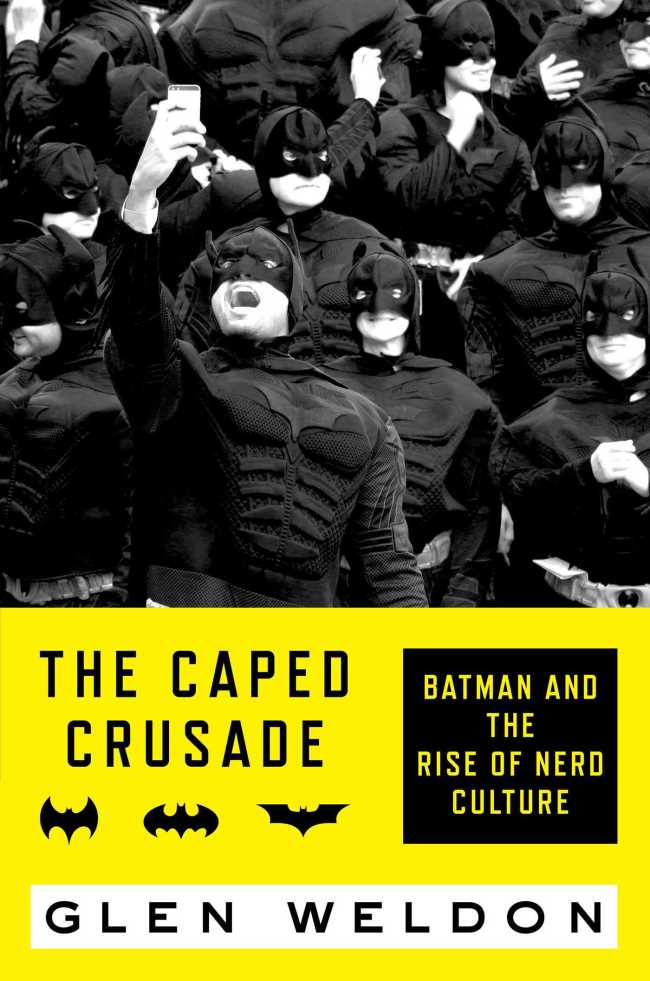
“The Caped Crusade” by Glen Weldon
Simon & Schuster (325 pages, $26)
Batman has been a lot of things during the past 77 years: a gun-toting vigilante, an object of panic at the height of American homophobia, a campy ’60s television icon, a grumbly middle-aged antihero and a mass media star.
But through all of these iterations, what has given Batman his longevity? The answer lies in the pages of “The Caped Crusade: Batman and the Rise of Nerd Culture” by Glen Weldon, a sharp, deeply knowledgeable and often funny look at the cultural history of Batman and his fandom.
As Weldon writes, Batman’s longevity has less to do with “relatability” and more to do with the oath a young Bruce Wayne makes to spend the rest of his life “warring on all criminals” after witnessing the murder of his parents.
“(F)or all the character’s vaunted darkness, he is now and has always been a creature not of rage but of hope,” Weldon writes. “He believes himself to be an agent of change; he is the living embodiment of the simple, implacably optimistic notion Never again.”
Weldon, an NPR critic and the author of “Superman: The Unauthorized Biography,” offers readers a tour through the annals of Bat-history -- his origins as a rip-off of the Shadow, other kid sidekicks at the time of Dick Grayson/Robin’s debut, “The Dark Knight Returns,” the death of second Robin Jason Todd (in 1988, Weldon phoned in his vote to kill off “the insolent punk” when DC put the character’s fate in the hands of readers) -- as well as adaptations in mass media, including the 1940s movie serials, 1960s TV series starring Adam West and Burt Ward, Emmy-winning cartoons, video games and memes. (TNS)
By Jeremy Mikula
Chicago Tribune








